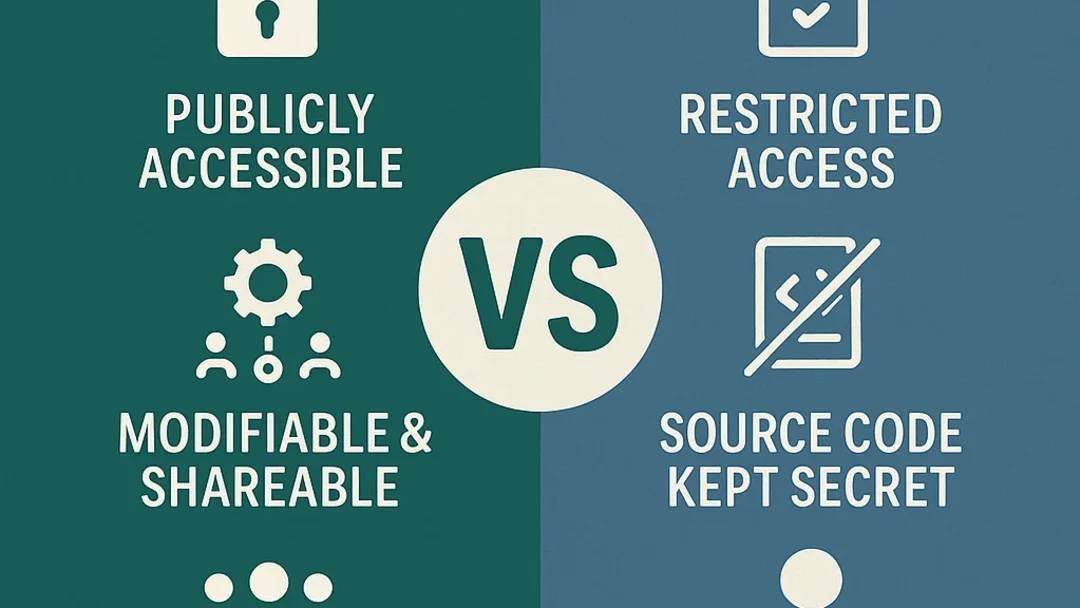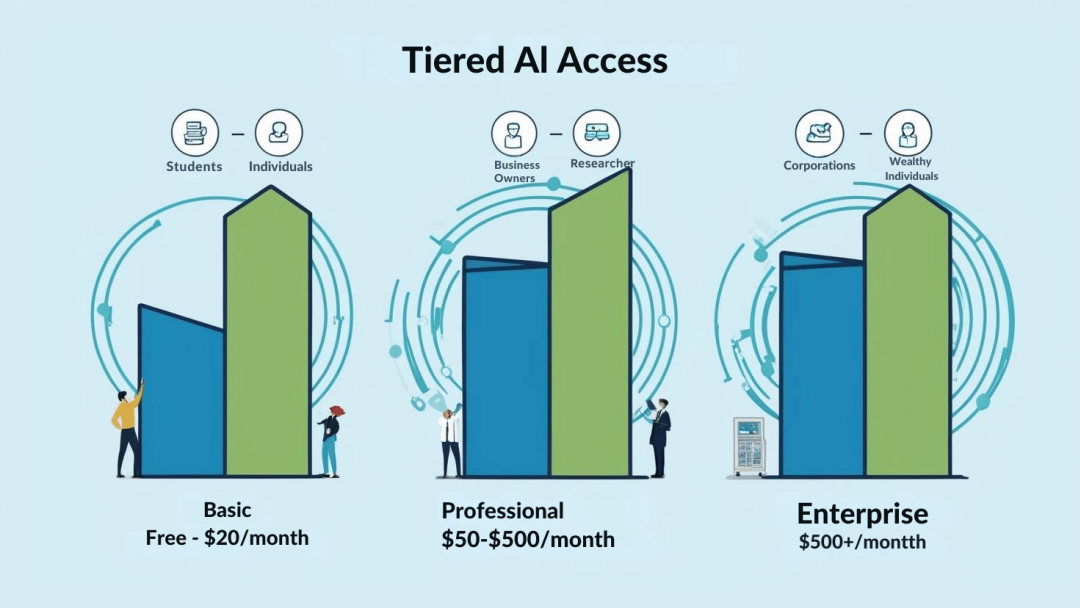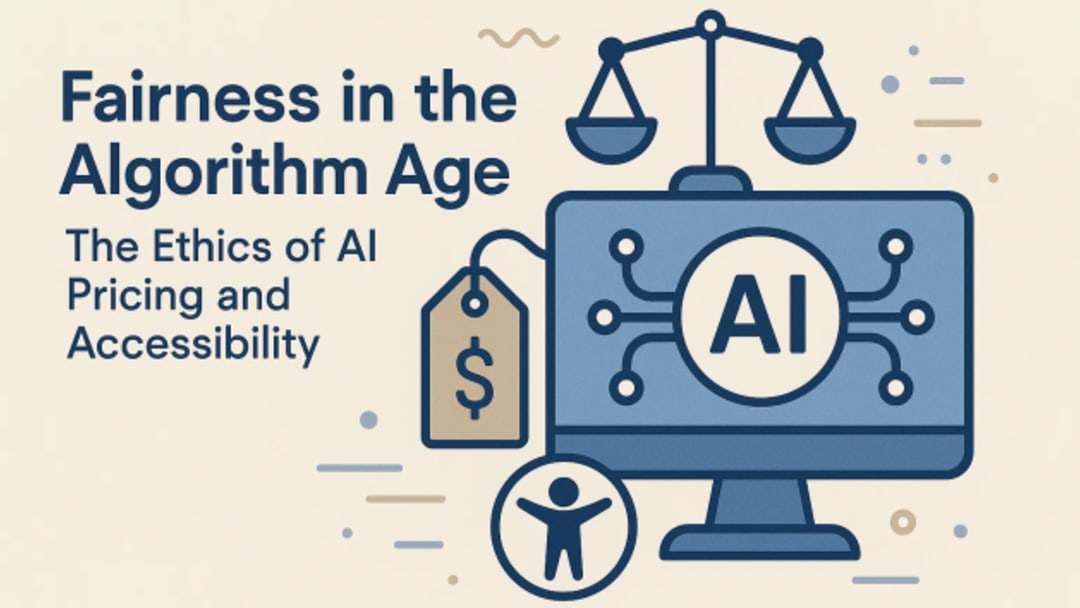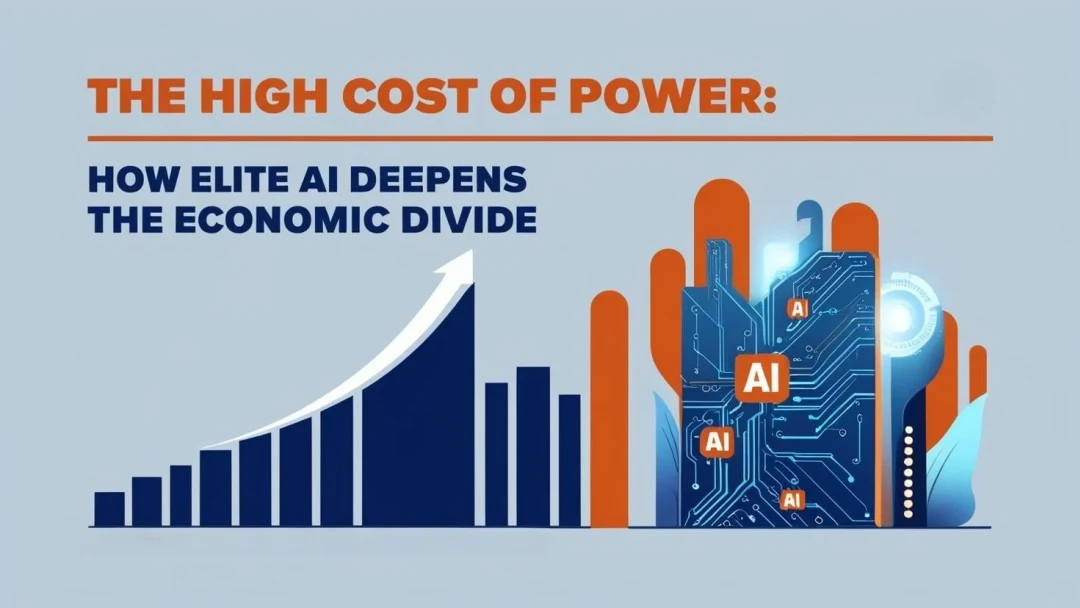Artificial Intelligence is rapidly reshaping our world, offering unprecedented capabilities and efficiencies. But as these powerful tools become increasingly integrated into our economies and societies, critical questions arise about who gets to benefit and on what terms. The pricing models adopted by AI developers and providers are not merely business decisions; they are ethical choices with profound implications for accessibility, societal equity, and the very structure of our future. This article delves into an ethical examination of AI pricing, its impact on the digital divide, and explores principles of just economics from a Christian perspective, urging a move towards fairness in the algorithm age.
Fairness in the Algorithm Age: The Ethics of AI Pricing and Accessibility
The AI revolution is in full swing, and its transformative potential is undeniable. From healthcare and education to finance and creative arts, AI promises to unlock new frontiers of innovation and productivity. the way these powerful technologies are being brought to market-specifically, the pricing strategies and access tiers-raises urgent ethical concerns. Are we creating a future where AI empowers all, or one where it further entrenches existing inequalities, creating an even wider chasm between the haves and the have-nots?
The dominant trend sees the most powerful AI models and features locked behind significant paywalls, premium subscriptions, or usage-based fees that can quickly become exorbitant for individuals, small businesses, researchers in less-funded institutions, and communities in the Global South. This isn't just about who gets the latest cool gadget; it's about who gets access to tools that will increasingly define economic competitiveness, educational opportunity, and even societal participation. As Christians, we are called to engage with such systemic issues, armed with biblical principles of justice, stewardship, and concern for the common good.
The Current Landscape: AI Pricing and Its Discontents

Before delving into the ethical critique, it's important to understand common AI pricing models:
- Tiered Subscriptions: Many AI services offer different tiers (e.g., free, basic, pro, enterprise) with varying levels of features, usage caps, processing power, and access to the latest models. The most capable versions are often the most expensive.
- Usage-Based Pricing (Pay-As-You-Go): Common for AI APIs and platforms, where users are charged based on the amount of data processed, the number of queries made, or the computational resources consumed. While offering flexibility, this can lead to unpredictable costs and become very expensive for high-volume users.
- Per-Seat Licensing: Often used for enterprise solutions, where companies pay a fee for each user accessing the AI tools.
- Freemium Models: Offering a basic version for free with the hope of upselling users to paid premium versions. While this provides some level of access, the free versions are often significantly limited.
While these models are standard business practices, their application to transformative AI technologies creates specific ethical challenges:
- Exacerbating the Digital Divide: Access to the most powerful AI becomes a function of wealth. Individuals, businesses, and nations with greater financial resources can afford superior AI capabilities, gaining a significant advantage and potentially leaving others further behind. This creates a new "AI divide" layered on top of the existing digital divide.
- Stifling Innovation for Smaller Players: Small businesses, startups, independent researchers, and non-profits may lack the capital to afford cutting-edge AI tools, hindering their ability to innovate, compete, and contribute to societal solutions.
- Concentration of Power: High costs can lead to the concentration of AI power in the hands of a few large corporations that can afford to develop and deploy these technologies at scale, as well as purchase premium access from other providers. This raises concerns about market dominance, reduced competition, and undue influence.
- Bias in "Value": Pricing models are often based on the perceived economic value AI can generate for businesses. This can marginalize uses of AI that have high social value but low direct economic return, such as applications for humanitarian aid, environmental protection, or community development in underserved areas.
A Christian Ethical Framework for Economic Justice

From a Christian perspective, economic practices, including pricing models, are not ethically neutral. They must be evaluated in light of biblical principles of justice, stewardship, and love for neighbor.
1. Justice and Equity (Amos 5:24, Micah 6:8)
Scripture repeatedly calls for justice and righteousness in economic dealings.
- Fairness to the Poor and Vulnerable: God shows particular concern for the poor and vulnerable (Proverbs 14:31, Proverbs 22:22-23). Economic systems and pricing models that disproportionately disadvantage or exclude the poor are ethically suspect. If AI is a tool that can significantly improve lives and livelihoods, then access to its core benefits should not be solely determined by the ability to pay top dollar.
- Condemnation of Exploitation: The Bible condemns exploitative economic practices that enrich some by oppressing or disadvantaging others (James 5:1-6). While charging for a service isn't inherently exploitative, pricing models that make essential or highly impactful technologies inaccessible to most, while allowing a few to reap massive benefits, can veer into exploitative territory if not carefully managed.
"Let justice roll down like waters, and righteousness like an ever-flowing stream." (Amos 5:24, ESV) This vision of overflowing justice should inform how we think about access to transformative technologies.
2. Stewardship of God-Given Resources and Technologies (Genesis 1:28, 1 Peter 4:10)
AI is a product of human ingenuity, which itself is a gift from God. The knowledge, resources, and talents used to create AI are ultimately derived from God's creation and His endowments.
- For the Common Good: As stewards, those who develop and control such powerful technologies have a responsibility to consider the common good, not just profit maximization (1 Corinthians 10:24). Pricing models should reflect a commitment to ensuring that AI benefits humanity broadly.
- Accountability: Stewards are accountable to God for how they manage the resources entrusted to them. This includes accountability for the societal impact of their business practices, including pricing.
"As each has received a gift, use it to serve one another, as good stewards of God's varied grace." (1 Peter 4:10, ESV) While this refers to spiritual gifts, the principle of stewarding gifts for mutual service has broader economic implications.
3. Love of Neighbor (Mark 12:31)

The command to "love your neighbor as yourself" is a cornerstone of Christian ethics and has direct implications for economic fairness.
- Considering the Other's Needs: Loving our neighbor means considering how our economic decisions, including pricing, affect their well-being and opportunities. If AI pricing makes essential tools for education, healthcare, or small business development unaffordable for many, it fails the test of neighborly love.
- Avoiding Barriers: Unjust or excessively high pricing can create barriers that prevent our neighbors from accessing tools that could help them flourish. Love seeks to remove such barriers where possible.
4. The Dangers of Greed and Unfettered Capitalism (1 Timothy 6:10, Luke 12:15)
While the Bible affirms principles like private property and fair profit, it consistently warns against greed and the idolatry of wealth.
- Profit with Purpose: Businesses, including AI companies, need to be sustainable and profitable. from a Christian perspective, profit should not be the sole or ultimate motive. Purpose, including societal benefit and ethical conduct, must also drive business decisions.
- Critique of Unfettered Markets: A purely utilitarian or market-driven approach to AI pricing, without ethical guardrails, can lead to unjust outcomes. The "invisible hand" of the market does not always produce equitable results, especially when dealing with technologies that have such profound societal impact and network effects.
"For the love of money is a root of all kinds of evil." (1 Timothy 6:10, ESV) This warning applies to corporate behavior as much as to individual attitudes. Pricing strategies driven primarily by maximizing extraction of wealth, without due regard for accessibility, can fall under this critique.
Towards More Ethical AI Pricing and Accessibility: Potential Pathways
Challenging the status quo is not enough; we must also explore constructive solutions. How can AI be priced and made accessible in ways that are more ethically sound and socially responsible?
1. Expanding Robust Freemium Tiers and Open Access
- Truly Useful Free Tiers: AI companies could commit to offering genuinely useful and powerful free tiers, especially for individuals, students, educators, and non-profits. These tiers should be sufficient for meaningful use, not just a "teaser" for expensive upgrades.
- Public Access Models: Similar to public libraries providing access to books and computers, could there be publicly funded or philanthropically supported initiatives that provide access to powerful AI tools for those who cannot afford individual subscriptions?
- Support for Open-Source AI: As discussed in other contexts, robust, well-funded open-source AI models offer a critical alternative to proprietary, high-cost systems. Investing in and contributing to these efforts is vital for democratizing access.
2. Differential and Equitable Pricing Structures

- Income-Based or Geographically Adjusted Pricing: Implementing pricing models that adjust based on the user's income level or the economic conditions of their region (e.g., lower prices for users in developing countries). This is already done in some industries (e.g., pharmaceuticals, academic software).
- Subsidized Access for Social Good: Offering heavily discounted or free premium access to non-profits, educational institutions, public health organizations, and researchers working on projects for the common good.
- Transparent and Justifiable Pricing: Companies should be transparent about their pricing structures and be able to justify them also in terms of development costs and a commitment to broader societal benefit.
3. Rethinking "Value" Beyond Purely Economic Returns
- Prioritizing Social Impact: AI companies, especially those with a stated commitment to ethical AI, should actively consider the social impact of their pricing. This might mean forgoing some potential profit to ensure wider accessibility for tools that can address pressing social needs.
- Long-Term Vision vs. Short-Term Gain: A focus on short-term profit maximization through high-cost premium tiers might alienate potential users and stifle broader ecosystem growth in the long run. A more inclusive approach could foster greater innovation and wider adoption, ultimately benefiting both society and the companies themselves.
4. The Role of Policy and Regulation
While not a purely "Christian" solution, public policy can play a role in ensuring fairer access.
- Promoting Competition: Antitrust measures to prevent monopolies in the AI sector can help ensure a more diverse market with more competitive pricing.
- Public Investment in AI Research and Infrastructure: Government investment in open AI research and public AI infrastructure can provide alternatives to purely commercial offerings.
- Ethical Guidelines for Public Sector AI Use: When governments use AI, they should prioritize systems that are transparent, accountable, and developed with broad accessibility in mind.
5. The Responsibility of Consumers and Investors
- Conscious Choices: As consumers, we can support AI companies that demonstrate ethical pricing and accessibility practices.
- Ethical Investing: Investors, particularly those guided by Christian values, can use their influence to encourage AI companies to adopt more equitable business models. Shareholder advocacy can be a powerful tool.
The Church's Prophetic Voice and Practical Action

The Church has a vital role to play in this conversation:
- Raising Awareness: Educating congregations about the ethical implications of AI, including pricing and accessibility, from a biblical perspective.
- Advocacy: Speaking prophetically to industry leaders and policymakers about the need for economic justice in the deployment of AI.
- Modeling Generosity and Stewardship: Churches can model responsible technology use and support initiatives that promote digital inclusion.
- Supporting Open Source and Non-Profit AI: Encouraging support for and contribution to open-source AI projects and non-profit organizations working to make AI accessible for social good.
- Discipling Tech Professionals: Equipping Christians working in the tech industry to think ethically about their work and to advocate for just practices within their companies.
Conclusion: Seeking an AI Future That Serves All
The pricing of AI is not a morally neutral issue. It reflects our values and priorities. In an age where AI is set to become a fundamental utility, akin to electricity or the internet, ensuring broad and equitable access is a matter of justice. High-cost models that reserve the most powerful AI capabilities for the wealthy and powerful risk creating a deeply divided society, where the benefits of this transformative technology are not widely shared.
From a Christian perspective, we are called to challenge economic structures that perpetuate inequality and to advocate for systems that reflect God's concern for the poor, His call for justice, and His desire for the flourishing of all. This means critically examining AI pricing models and championing alternatives that prioritize accessibility, fairness, and the common good.
The goal is to ensure that its pricing and distribution do not become insurmountable barriers that prevent individuals and communities from accessing the tools they need to thrive in the algorithm age. By applying principles of stewardship, justice, and love for neighbor, we can work towards an AI future that truly serves all of humanity, not just a privileged few.
FAQs
Q1: Isn't it fair for companies to charge high prices for AI if it provides significant economic value to businesses? A1: While companies should be compensated for the value they provide, "fairness" also involves considering the broader societal impact. If high prices make AI inaccessible to smaller businesses, non-profits, or individuals who could also benefit or contribute to innovation, it raises ethical questions about equity and opportunity. A Christian perspective would argue that value cannot be measured solely in economic terms but must also include social and human flourishing. Justice requires balancing fair return with fair access, especially for technologies with such transformative potential.
Q2: How can we expect AI companies to prioritize social good over profits when they are accountable to shareholders? A2: This is a genuine tension. However: _ Long-term Value: Increasingly, companies are recognizing that sustainable long-term value is tied to social responsibility and ethical conduct. Alienating large segments of potential users or contributing to societal instability is not a good long-term business strategy. _ Shareholder Advocacy: Shareholders, especially institutional investors and those with ethical commitments (like many faith-based investors), can and do pressure companies to adopt more responsible practices. _ "Benefit Corporation" Models: Some companies are structured as "benefit corporations" (B Corps), which legally allows them to prioritize social and environmental goals alongside profit. _ Corporate Social Responsibility (CSR): While sometimes criticized as superficial, genuine CSR initiatives can include subsidized access programs or investments in open-source alternatives.
Q3: What can an ordinary individual or a local church realistically do about massive AI company pricing policies? A3: While it may seem daunting, individuals and churches can: _ Educate Themselves and Others: Understand the issues and discuss them. _ Make Conscious Choices: Support companies and AI tools that offer fairer access or have strong ethical commitments. _ Advocate: Join or support organizations advocating for digital rights, ethical AI, and open-source solutions. Write to elected officials about the need for policies that promote equitable access. _ Support Non-Profits: Donate to or volunteer with non-profits working to bridge the AI divide or develop AI for social good. * Local Initiatives: Churches can start local digital literacy programs or explore ways to provide community access to essential digital tools (though high-end AI may be beyond current reach, the principle applies). Collective awareness and action, even starting small, can contribute to broader change.
Related Sub-Articles







